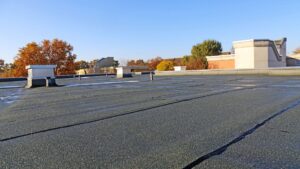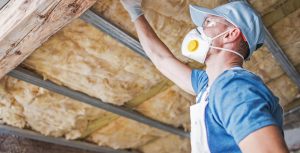Replacing your roof is one of the most significant home improvement investments you can make. Whether your roof has reached the end of its lifespan or suffered storm damage, understanding the roof replacement timeline and the cost of roof replacement can help you prepare both mentally and financially. From assessing how long the process takes to breaking down the price factors, this guide will walk you through the full roof replacement process with expert insights every homeowner should know.
How Long Does a Roof Replacement Take?
One of the most common questions homeowners ask is: how long does a roof replacement take? The short answer is—it depends. Several variables influence the roof installation time frame, including roof size, weather conditions, material choice, and contractor availability.
On average, a roof replacement for a typical single-family home takes 1 to 3 days. However, larger homes or roofs with steep slopes, multiple layers, or complex structures can stretch the roof replacement duration to a week or more. The project may also be delayed due to weather conditions such as rain, wind, or extreme heat.
Your contractor will give you a roof replacement schedule after inspecting your home, which outlines how long each step will take—from removing old shingles to installing the new roofing system.
Understanding the Full Roof Replacement Process
To better manage your expectations and budget, it’s helpful to understand the steps in roof replacement. The process begins long before the first shingle is removed.
First, your contractor will conduct a detailed roof inspection to evaluate the condition of the existing roofing system and underlying decking. Next, you’ll choose your roofing materials—whether asphalt shingles, metal panels, tiles, or another option. Once that decision is made, the installation crew will schedule your project and deliver the necessary materials.
The active replacement usually includes:
- Removing the old roofing materials
- Inspecting and repairing the decking underneath
- Installing underlayment or a waterproof barrier
- Adding flashing around chimneys, vents, and valleys
- Laying down new shingles or panels
- Final inspection and site cleanup
The roofing project timeline is planned carefully to ensure all phases are completed efficiently without sacrificing quality.
Average Roof Replacement Cost: What to Expect
Another major concern for homeowners is the average roof replacement cost. So, how much does a new roof cost?
In general, a complete roof replacement in the United States ranges from $6,000 to $15,000 or more, depending on multiple factors. On a per-square-foot basis, homeowners can expect to pay between $3.50 and $8.00 or higher. Let’s take a closer look at what contributes to these variations.
Factors Affecting Roof Replacement Cost
Several elements impact your roof replacement cost estimate. These include:
- Size of the roof: A larger roof naturally requires more labor and materials.
- Type of roofing materials: Asphalt shingles are more affordable, while metal, slate, and tile are more expensive.
- Roof complexity: Roofs with multiple angles, dormers, and steep pitches will require more time and labor.
- Tear-off costs: Removing old shingles adds to the total project cost.
- Underlayment and decking repairs: If structural repairs are needed, costs will increase.
- Location: Labor and material prices vary by region.
- Permit and disposal fees: These often vary but should be factored into the total price.
For a basic asphalt shingle roof on a medium-sized home, the residential roof replacement cost may fall between $7,000 and $10,000, while premium materials like metal or slate can push the new roof cost beyond $20,000.
Roof Replacement Timeline by Project Phase
Understanding the roof replacement timeline by phase can help you track progress and plan your schedule during the project. Here’s what a typical breakdown looks like:
- Inspection and Quote (1–3 days):
After your inquiry, the contractor performs a site visit, inspects the roof, and prepares a written estimate. - Material Selection and Scheduling (1–5 days):
You choose materials and sign a contract. The roofer then orders supplies and books the job into their schedule. - Preparation and Delivery (1–2 days):
Materials are delivered, and protective measures (like covering landscaping or driveways) are taken. - Removal of Old Roof (1 day):
The crew removes shingles or existing materials and disposes of them. - Decking Repairs and Underlayment (1 day):
Any necessary repairs are done before installing the waterproof underlayment. - New Roof Installation (1–2 days):
Shingles or metal panels are installed with flashing, vents, and seals. - Final Inspection and Cleanup (Same day or next):
The site is cleaned, and a final walkthrough ensures everything is complete and up to code.
In total, the roof replacement duration averages 3 to 5 business days, barring delays.
How to Get an Accurate Roof Replacement Cost Estimate
Before committing to a contractor, it’s vital to get a detailed and transparent roof replacement cost estimate. Reputable roofing companies will provide a written quote that includes:
- Material and labor costs
- Tear-off and disposal fees
- Underlayment or decking repairs
- Flashing, ventilation, and other components
- Cleanup and final inspection
Be wary of extremely low estimates, as they may involve hidden costs, substandard materials, or unlicensed labor. Investing in quality materials and skilled labor upfront can save you from costly issues later.
Residential Roof Replacement: Is It Time?
If your roof is more than 20 years old, showing signs of wear, or has suffered storm damage, it might be time to consider a full replacement. Key indicators include:
- Curling, missing, or broken shingles
- Persistent leaks or water stains in the attic
- Sagging rooflines or visible rot
- High energy bills due to poor insulation
Ignoring these signs can lead to structural damage and higher costs in the long run. Getting an inspection early gives you time to plan for your roof replacement schedule without rushing during an emergency.
Planning Ahead: Roof Replacement as a Smart Investment
Although the cost of roof replacement can seem daunting, it’s one of the few home upgrades that can significantly boost your property value, curb appeal, and energy efficiency. Many homeowners see up to 60–70% return on investment when selling their home after a roof upgrade.
Additionally, modern roofing materials are designed to last longer and perform better than older alternatives, especially with proper installation and ventilation. So, while the upfront cost is a consideration, the long-term benefits of comfort, protection, and efficiency often outweigh the price.
Final Thoughts: Prepare for a Seamless Roof Replacement Experience
Knowing what to expect during a roof replacement helps eliminate surprises and ensures the process goes smoothly. By understanding the roofing project timeline, knowing how much a new roof costs, and planning for each phase of the full roof replacement process, you can confidently take the next step in protecting your home.
Ready to Upgrade Your Roof with Confidence?
At Panda Roofing & Construction, we understand that replacing your roof is a big decision. That’s why we’re committed to delivering transparent pricing, dependable timelines, and top-quality craftsmanship—every time. Whether you’re looking for a quote, need help choosing materials, or want a second opinion, our experienced team is here to guide you from start to finish.
Contact Panda Roofing & Construction today to schedule your free inspection and personalized estimate. Let’s build a stronger roof—and peace of mind—together.






